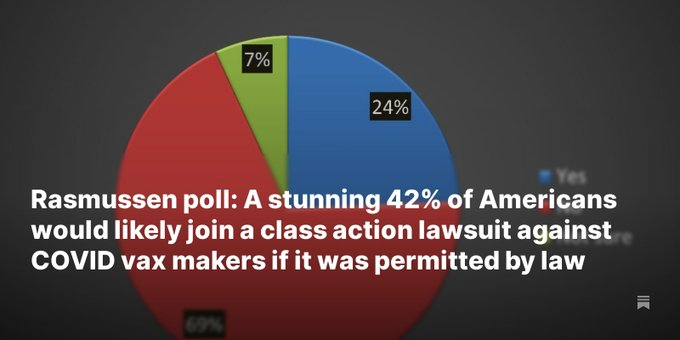Researchers Find Pfizer Excluded Clinical Trial Deaths From FDA COVID Vaccine EUA Request

Pfizer and BioNTech submitted a data package to the U.S. Food and Drug Administration (FDA) in 2020 to obtain emergency use authorization (EUA) for their COVID-19 vaccine so that the agency could evaluate the vaccine’s safety and efficacy. According to a peer-reviewed study published recently by the DailyClout Pfizer/BioNTech Documents Investigations Team, Pfizer excluded known deaths in the vaccine arm of its clinical trial from its data filing and withheld information from the agency, which could have resulted in an EUA denial.
According to the study, delayed reporting of subject deaths into Case Report Forms (CRFs) obscured the cardiac adverse event signal and allowed Pfizer/BioNTech’s request for EUA to proceed unchallenged.
A group of researchers conducted a forensic analysis of Pfizer/BioNTech’s early COVID-19 vaccine trial data and discovered significant inconsistencies between data in the companies’ six-month interim report and publications authored by Pfizer/BioNTech trial site administrators, as reported by The Epoch Times prior to the study’s publication in the International Journal of Vaccine Theory, Practice, and Research.
The forensic analysis revealed that trial subjects vaccinated with Pfizer’s COVID-19 vaccine had a 3.7-fold increase in cardiovascular deaths compared to placebo controls, and that Pfizer failed to disclose this “significant adverse event signal” when the FDA was evaluating its vaccine for emergency use. Furthermore, researchers discovered numerous instances in which Pfizer/BioNTech attributed potential vaccine-related deaths to other causes, undermining vaccine safety data.
Vaccine approval was aided by altered Pfizer data.
Pfizer changed their data at a critical decision point to favor EUA approval, according to study co-author Corinne Michels, Professor Emerita at Queens College in New York, in an email to The Epoch Times. According to the study, Pfizer had a data cutoff date of November 14, 2020, for its COVID-19 vaccine EUA application. The company presented data in its filing showing four deaths in the placebo arm of its clinical trial and two deaths in the vaccine arm, which inflated the vaccine’s positive impact on death outcomes.
Dr. Susan Wollersheim, a clinical reviewer with the FDA’s Center for Biologics Evaluation and Research, presented data showing only two vaccine deaths during the clinical trial and four placebo deaths on December 10, 2020, one day before the FDA granted EUA for Pfizer’s COVID-19 vaccine, which was used to support the claim that Pfizer’s COVID-19 vaccine, if approved, would save lives.
Pfizer documents obtained by Public Health and Medical Professionals for Transparency through a Freedom of Information Act lawsuit and analyzed by the researchers show four additional deaths in the vaccine arm of the clinical trial and one additional death in the placebo arm, neither of which were included in the FDA’s presentation on the efficacy and safety of Pfizer/BioNTech’s COVID-19 vaccine.
Pfizer’s “narrative descriptions of the deaths” show that the company was aware of at least two deaths (#11141050 and #11201050) in the vaccine arm of its clinical trial prior to the EUA data cutoff. According to Professor Emerita Michels, Pfizer did not report the deaths in its EUA data filing despite clear evidence that it had been notified immediately of the deaths.
According to Pfizer’s protocol for clinical trials, “All SAEs [serious adverse events] occurring in a participant during the active collection period as described in Section 8.3.1 are reported to Pfizer Safety on the Vaccine SAE Report Form immediately upon awareness and under no circumstance should this exceed 24 hours.”
Furthermore, all nonserious and severe adverse events that occur during the “active collection period” that begins after the investigator obtains informed consent from the participant are recorded in the adverse event section of the CRF, and the investigator is to “record on the CRF all directly observed and all spontaneously reported AEs [adverse events] and SAEs reported by the participant.”
Pfizer was required by protocol to record deaths in the CRFs used to capture clinical trial data and submit the CRFs along with its data file to the FDA. Instead, despite knowing that the deaths had occurred, Pfizer delayed recording them.
“According to the trial protocol, Serious Adverse Events (SAEs) are supposed to have been reported within 24 hours into the Case Report Form upon being notified,” study co-author Dr. Jeyanthi Kunadhasan said in an email to The Epoch Times. “The most serious SAE is death.” If the FDA had received the data in a timely manner, they would have had to consider approving a drug in which the first four deaths in the vaccinated arm occurred in patients in their mid-50s and mid-60s.”
The ‘Cardiac Event Signal’ Was Missing
According to the Pfizer documents, the first known but excluded death involved a 63-year-old female who died of a sudden cardiac arrest on Oct. 19, 2020, 41 days after receiving her second Pfizer dose. Pfizer was notified of her death on October 19, and an autopsy confirmed she died of “sudden cardiac death.” Despite this, the woman’s death was not reported on the CRFs until November 25, 2020, 37 days after she died.
The second death occurred on November 7, 2020, 72 days after receiving her second Pfizer dose, in a 58-year-old female who died from cardiac arrest. Despite being informed of her death by her husband on the day she died, Pfizer did not enter the death into the CRF until December 3, 2020, which was 26 days after the patient died.
Because Pfizer delayed recording participant deaths in their case report file and did not use the “actual date of death,” the researchers claim that these deaths were “not discoverable at a critical juncture of the EUA approval process, and the cardiac event signal was obscured.”
“If Pfizer/BioNTech had reported the actual date of death instead of the date the deaths were recorded in the Case Report Forms, Subjects #11141050 and #11201050 would have been included in the EUA application,” Michels said in a statement. “Given this scenario, there would have been four vaccinated and four placebo subjects who died prior to the November 14th data cutoff date and whose deaths should have been included in the EUA application.”
Four of these deaths were caused by cardiac events in vaccinated subjects, compared to two in the placebo group. While the numbers are small, they represent a twofold increase in cardiac events in participants who had been vaccinated.
“The delay in notification of the two critical patient deaths (#11141050 and #11201050) has to be investigated,” the doctor said. “The patients’ families did the right thing by immediately informing the clinical site.” They, like all of us, deserve answers.”
According to the study, if the exact number of deaths that Pfizer was aware of had been included in its data package and presented during the FDA’s EUA Authorization Request meeting, it would have shown an equal number of deaths in the vaccine and placebo arms of the clinical trial, implying that vaccination had no benefit.
The Epoch Times attempted to contact Pfizer for comment but did not receive a response.






